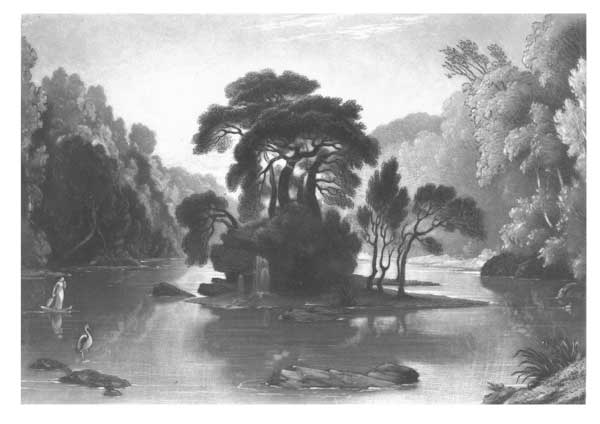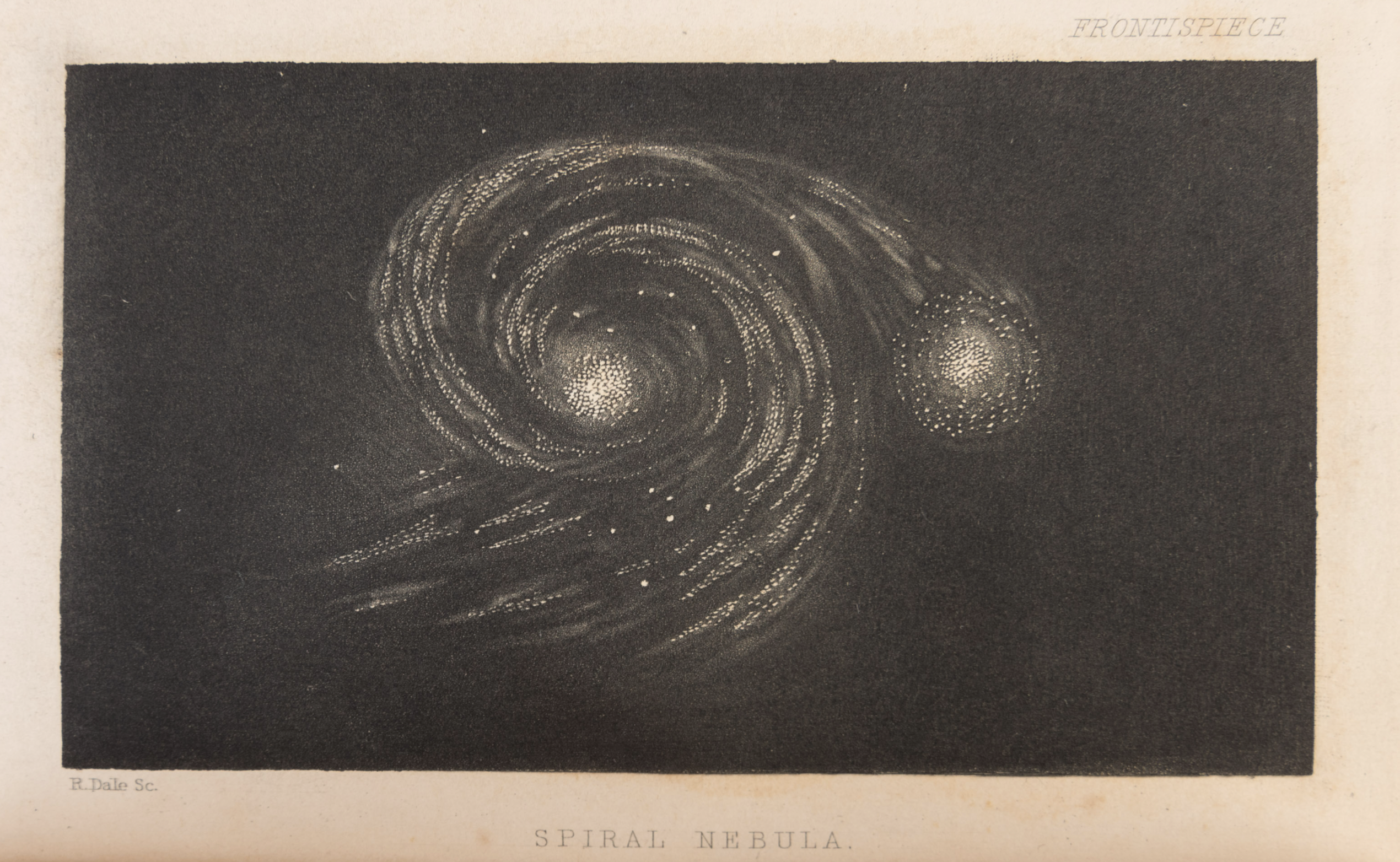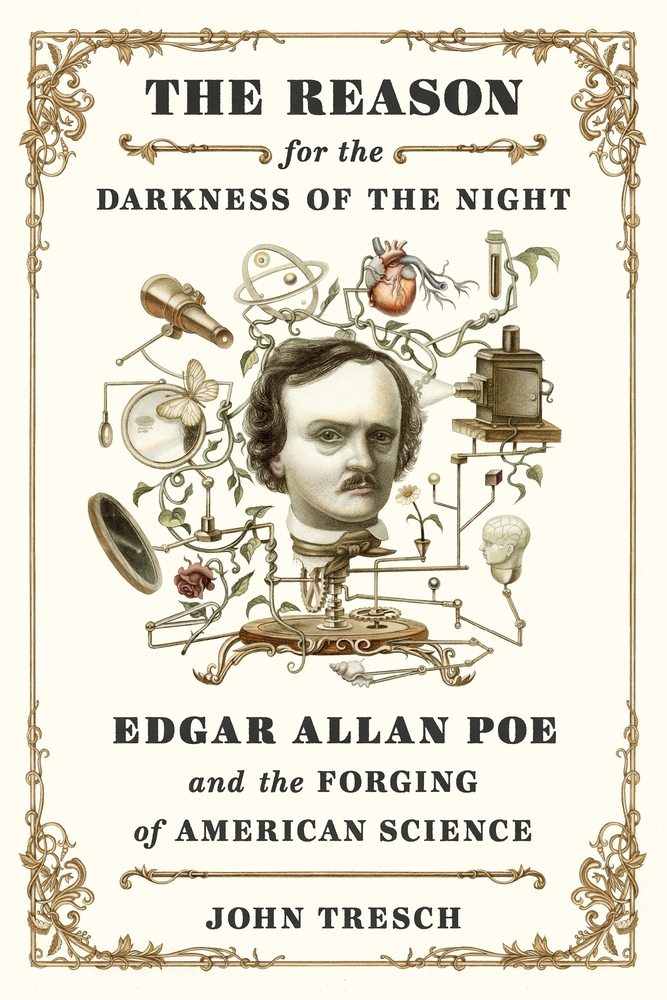I found this book fascinating, enlightening, and intriguing, and not only because I am a Poe adherent. Author John Tresch delves into a short moment in the history of American science, one that is often only referenced. By focusing on the two decades around Poe’s most prolific years, readers can really get a sense of the disparate ideas and turbulent scene among scientific thinkers.
The book is primarily a biography, but views its subject through the lens of science and writing efforts. Clear lines are drawn between Poe’s life events, the scientific community’s academic conversation, and Poe’s literary output. When the world was enraptured by Arctic exploration, Poe was inspired to write The Narrative of Arthur Gordon Pym. As scientists worked to collect, categorize, and classify the natural world, Poe was hired to write The Conchologist’s First Book, an illustrated guidebook to oceanic shells. When the theory of phrenology claimed to predict criminal behavior, Poe penned his tales of ratiocination.
As much as I’ve read Poe, read about Poe, and noticed Poe’s interest in the technical, I was unaware of how directly involved he was with the scientific discourse. He gave lectures and presented philosophical treatises on the origins of the Universe. Throughout his public life, he struggled to combine Man’s tendency to imagine and the rigorous discipline of science. From “Sonnet-To Science” to this cosmological treatise Eureka, Poe diligently worked to bring the ethereal nature of poetry and the tangible study of sciences.

I asked the author a few questions about this struggle between solid truth and fanciful imagination, between reason and inspiration, between darkness and light.
You write about the tension between science and imagination in Poe’s time. Which
of his works do you think best exemplifies his answer to that struggle?
Poe set this problem out clearly in an early poem, “Sonnet—To Science,” which he
addressed to this new deity of the modern world, science. He complains that science has totally changed the world: when we look at the moon we don’t see Diana in her chariot, but instead a lifeless, pock-marked stone; when we walk through the woods we see the species of plants described botanists and the rocks described by geologists, not the fairies, nymphs, or naiads in myths and imaginative works. The poem says science’s “vulture eye” has hidden this imaginative, enchanted dimension of the world. Speaking for poets, he asks science: “How should he love thee, or how deem thee wise?” My book shows that Poe spent the rest of his life trying to answer that question—trying to redefine the poetic and creative imagination in a world transformed by science and machines. One answer he gives—his most vivid, beautiful, and strange—is his story, “The Domain of Arnheim.” It imagines a fantastic, colossal, hypnotic landscape garden, and is a kind of manifesto for his guiding aesthetic ideas: that art is the continuation of nature by other means, that the highest art is a remaking of the world.
Do you think Poe’s troubled love/hate relationship with science was complicated by the inability of medicine to save the women in his life?
That’s an interesting thought, especially since there was so much excitement in his time about science and about new kinds of cures and various diets, anesthesia through mesmerism, and new classifications of disease: medicine was beginning to promise much better health through science. But at the same time, in Poe’s world, in the early 19th century, sickness and death were everywhere: he lived through a traumatic cholera epidemic and both his mother and his wife died of tuberculosis; women frequently died in childbirth and infant mortality was high. There were no antibiotics, no germ theory, sanitation was poor, and there was nothing like 20th century medicine’s claim to “eradicate disease.”
So Poe’s response to death and illness wasn’t so much hostility toward science (except for its most exaggerated promises), but rather a recognition that death and illness are part of life, however painful and frightening that is. The challenge he took on was to recognize and acknowledge where science might make some interesting change or even improvement— a clever new gadget, a helpful analysis, a methodical approach to practical problems— but not to lose sight of the destruction, dissatisfaction, and death that are essential to existence. That’s a big part of his cosmology, Eureka, as well as his stories and essays, where you can see a kind of early existentialism.

Considering how excited Poe was by scientific discoveries, it is strange when you remember his life predates even analog technologies like typewriters. What do you think Poe would have been most in awe of the next few decades, had he lived longer?
Well, he predicted quite a lot of things that actually did show up — transatlantic flight, space travel, human-caused climate change. And he wouldn’t have been surprised by the mechanical destruction of the Civil War, which happened not long after his death, or later wars: he was trained as a soldier and grew up in slaveholding Richmond, so he knew all about systems of rationalized brutality.
But in a number of works Poe wondered about whether machines could think or take the place of humans — and there were a few attempts in his lifetime (though some were hoaxes) to build machines to play chess, do math, write poetry. So I would really like to see what he would do with contemporary artificial intelligence, especially something like the GPT-3 “language prediction model” which uses machine learning to generate texts that are nearly impossible to tell apart from something a human could do. It’s a machine which is almost as good at adapting its intelligence to the level of whatever it’s faced with — in this case, the data set that “trains” it — as Poe was.
While the book is dense, I never felt overwhelmed. Instead, the alliance of the ideas presented creates an exciting momentum for the reader. Even for a Poe enthusiast like me, there were plenty of new tidbits and details to enjoy. It’s a must-read for anyone interested in Poe or the history of science.
My thanks to Alexis at Farrar, Straus and Giroux for the review copy, and to John Tresch for answering my questions.
My rating: [xyz-ihs snippet=”5-Stars”]
Publisher: Farrar, Straus and Giroux (June 15, 2021)
Language: English
Hardcover: 448 pages
ISBN: 0374247854

